
Topics
Up to 40 people have been killed in Haiti as anti-government gangs and militias work to overthrow the government of Jean Bertrand Aristide. We discuss the causes of the recent violence and examine what role the U.S. is playing in the current events in the country. [includes transcript]
If it weren’t for the occupation of Iraq, perhaps official attention in Washington would be focused south on the island nation of Haiti. Anti-government gangs and militias are working with opposition groups and former army officers in an effort to overthrow the government of Jean Bertrand Aristide. There is concern that Washington is once again working behind the scenes to foment a coup.
The Haitian President said yesterday he will not step down from office, telling reporters “I will leave the palace Feb. 7, 2006”-that is the day his mandate as president ends. For weeks, Haiti has seen armed gangs attacking government forces and supporters in various towns and cities across the country. Pro-government supporters have been defending Aristide. There have been a series of armed battles that have resulted in at least 40 deaths. Haiti has no army and has a dwindling police force numbering only a few thousand.
If the violence escalates, there are fears that Haiti could experience another mass exodus of people taking to boats to flee the country. And many are beginning to question exactly what role the US is playing in the current events in the country.
This week the Bush administration stopped just short of calling on the Aristide to resign. State Department spokesperson Richard Boucher told reporters, “We recognize that reaching a political settlement will require some fairly thorough changes in the way Haiti is governed.”
Another senior official told The Baltimore Sun, “When we talk about undergoing change in the way Haiti is governed, I think that could indeed involve changes in Aristide’s position.”
- Dr. Paul Farmer, author of “The Uses of Haiti” and ” Pathologies of Power: Health, Human Rights, and the New War on the Poor”. Farmer helps run clinics in Haiti.
- Jean Jean-Pierre, is a journalist who has written for the Village Voice for more than a decade. He was born and raised in Haiti.
Transcript
AMY GOODMAN: Ae turn now to two people: to Paul Farmer, a doctor, who runs health clinics in Haiti, as well as Jean Jean-Pierre, who is a Haitian journalist, who has written for The Village Voice for more than a decade, born and raised in Haiti. Let’s start with Jean Jean-Pierre. Your assessment of the situation right now?
JEAN JEAN-PIERRE: Well, it’s been a powder keg for a few years now, and I think both the opposition and, to a great extent, the government have pushed the envelope to the point where it bursts now. But I think we have to see this in the context of the ongoing relationship which has deteriorated to the point where Washington has totally ignored the effect of the support, the unconditional support to the opposition in Haiti, an opposition that has refused, in spite of all of the concessions made by Aristide, refused to take part in the electoral council, refused to go to elections, and who just flat-out want Aristide to depart from… By the way, the election that was… I have seen reports about the election, the presidential election, disputed by the opposition and the international community. I think those reports are wrong. The legislative election, the parliamentary election, of April of 2000 was flawed, but the election of Aristide was by all accounts a legitimate one, and I think if the international community, and I say that in quotation marks, does not act with dispatch, the situation is going to get worse, and we’ll see all other cities being taken by the rebels, what the government calls them: “the terrorists.” But that’s what they are. Those are people who were, some of whom, were allied to Aristide, but many also were in the army which was disbanded in 1995, and we know very well Washington never forgives Aristide, especially the Pentagon, for having got rid of the army, this corrupt and murderous army in Haiti.
AMY GOODMAN: Dr. Paul Farmer, what is your assessment of situation and also the involvement of the U.S. Government?
DR. PAUL FARMER: In order to avoid sounding conspiratorial, I will just start with a basic fact, and that is the army that was just mentioned that was disbanded in 1995. Why would the Pentagon and Washington not forgive Aristide for disbanding the army? One reason might be that that was an army created by the U.S. occupation of Haiti, so it came into being through an Act of U.S. Congress signed in Washington. And here a lot of Americans probably don’t know that. They don’t know that we occupied Haiti militarily and set up the structure that was in place there from 1915 until 1990 when Haiti had the first democratic elections, and the population voted overwhelmingly for Aristide. And another point, before making any predictions, is: anybody who is listening to your show or anybody who is watching the situation in Haiti should be asking themselves why is it that the government now in place is the body calling for elections? And why is it that the opposition is saying that we can’t have elections? That’s always a big sign, you know, a huge neon sign, suggesting that the people in place know that they’ll win in democratic elections, because they have popular support, whereas, the opposition, that is trying to make sure that elections don’t happen, know that they can’t win power in Haiti through the modern means, which is through the ballot box. They can win in the old fashioned ways they have almost always propelled Haitian politics forward, which is coups d’etat, having fake elections, etc., that what went on for 180, 190 years, but they can’t win at the ballot box. And that’s the basic issue. What’s at stake is the preservation of the people’s right to choose who they want as their leaders. Unfortunately, I believe that that choice has been eroded by U.S. foreign policy, fairly consistently, especially over the last decade.
AMY GOODMAN: Just going back to the previous coup, 1991 to 1994, when Aristide was removed from power, and the U.S. Government, revealed by investigative journalist Alan Nairn, support of the leading military leader, Emmanuel Constant, on the payroll of the defense intelligence agency, one of the exposes that brought down James Woolsey, ex-head of the CIA, having this paramilitary leader on the payroll, and people learning about it in this country. Now Emmanuel Constant walks free in the United States, protected by the U.S. Government. Can you comment on that, that role then, and that role today?
DR. PAUL FARMER: Go ahead, Jean Jean.
JEAN JEAN-PIERRE: Well, I think you have aptly said that Toto Constant roams free in the U.S., and, in fact, everybody knows he lives in Queens, and he is unperturbed by what’s going on because the U.S. is still protecting him. I think when the United States formed the Gendarmerie d’Haiti, which became the army, it was always the part of this low intensity warfare, used as a proxy, to execute the policies of the U.S. And so Toto Constant and FRAPH, were the paramilitary arm of the army, the arm and feet of the army, and I think the U.S. missed that with the return of Aristide, when Aristide disbanded the army. And the opposition, created by the U.S.–we know it’s not only the U.S., but also the European Union–is to always undermine any kind of policy, any progress that Aristide would make in terms of governance, not that we can’t always fault Aristide for his lack of knowledge and in terms of being an administrator of the country, but we have to realize, there’s an embargo on Haiti since the so-called flawed election. We are not talking about Florida here, but we are talking about the…
DR. PAUL FARMER: At the same time.
JEAN JEAN-PIERRE: Exactly. I cannot see how this Aristide could realize anything with such embargoes. So, it is clear that the U.S. is behind the scenes, and I think the U.S. bears a great deal of responsibility on what’s going on now, and this hinting that Aristide should step down, it harks back to the attitude of the U.S. towards Haiti, especially in the year 2004, 200 years after our independence, that we cannot govern ourselves. Yes, we bear the main share of responsibility, in terms of how we direct Haiti, how we develop this country, but the U.S. has never left, actually, since the military occupation of 1915. They have always used proxies, and we see the result, and the intransigence of the opposition is clearly a sign that they have no compunction saying that they get the support from the International Republican Institute. So, it’s the U.S…
AMY GOODMAN: The opposition is saying they’re getting support from the International Republican Institute?
JEAN JEAN-PIERRE: Of course. Of course, they went to the Dominican Republic last December. There was a big meeting, and it was no secret that they were getting directives from the IRI.
AMY GOODMAN: Dr. Paul Farmer, a final comment on what you are hearing on the ground in Haiti right now. It’s interesting we should mention the Florida race of 2000 because Florida is a place where Haitian refugees come.
DR. PAUL FARMER: Yeah. Well, it’s sort of my home state, if I have one after Haiti, so I have got lots of briefings on how bad the elections were there. At the same time, our official pronouncements about Haiti’s elections were withering, to put it mildly. Just one more word on the embargo, this is not, you know, again, something vague. It’s no more vague than IRI, International Republican Institute, funding for the opposition. These are things that have to be declared publicly. And it just strikes me that something can be so publicly declared and so unknown, and I guess it’s because it’s not regarded as a ranking concern for the American people. So, too, with the embargo against… what? Against humanitarian and development assistance to Haiti, which, you know, I, as a physician, just can’t believe that there would be any popular support, per se, blocking water assistance to Haiti, when Haiti was recently ranked 147 out of 147 countries assessed in terms of water security. And you know, the list goes on. But I’m particularly concerned that we have managed, the United States has managed, to stall aid to Haiti: health, education, and other humanitarian aid for really as long as Aristide has been in office. And you know, I work between Harvard and Haiti, and I work at one Boston hospital, Harvard teaching hospital, which has five times the revenue of the entire country of Haiti. Not health revenue, all revenue for Haiti. And so, there’s really, as Jean Jean just said, there’s really not a lot that you can do when you have nothing, except for popular support from a very noble people, who are committed to moving for a democracy, have been committed to this. I think that the majority of the Haitian people, the ones that I live with in rural Haiti, are committed to moving forward democracy, one person, one vote, social and economic rights for poor people, the right to…
AMY GOODMAN: Do you think we’re going to see a coup?
DR. PAUL FARMER: I don’t think that we’ll see a traditional coup, because in 1995, the traditional…
AMY GOODMAN: We have ten seconds.
DR. PAUL FARMER: You know, the army is not there. We could see more dirty tricks and a lot more violence, but I don’t think we’ll see a traditional coup. We need to align ourselves with pro-democracy forces in Haiti.
AMY GOODMAN: Paul Farmer and Jean Jean-Pierre, I want to thank you for being with us.

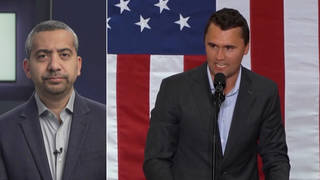
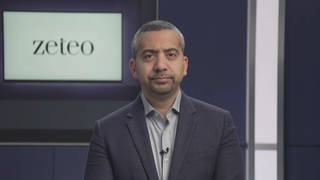

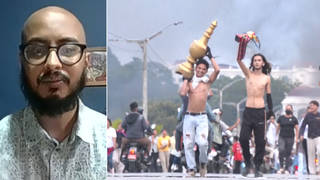





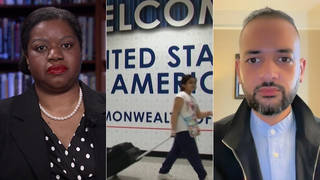
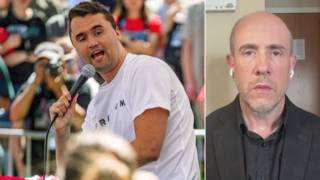
Media Options